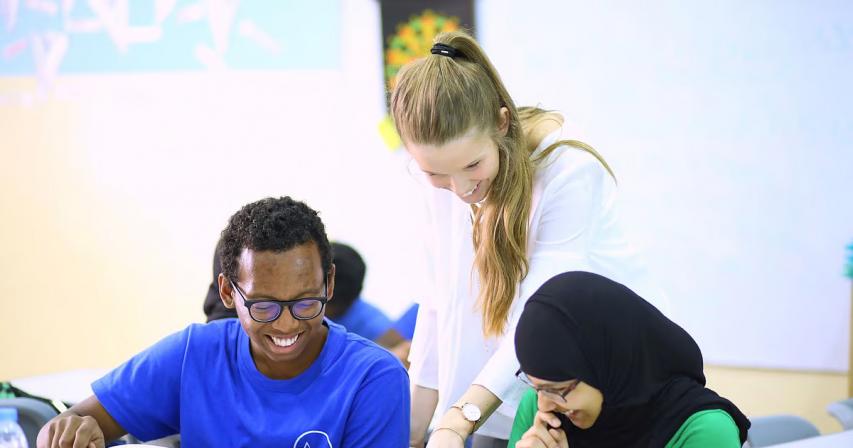How Dubai schools’ peer mentoring programmes boost academic success, leadership skills

A number of schools in Dubai are now implementing peer mentoring programs designed to aid in the academic achievement and personal development of students. Through these programs, older students are matched with younger pupils, providing individualized assistance that is advantageous to both the mentor and pupil.
In most scenarios, pupils are able to apply for mentoring roles through specialized online portals, receiving help in any academic subject from qualified older peers who have been trained and screened for the role.
School administrators claim these programs not only aid younger students with their studies, but also allow older pupils to develop important skills in leadership, empathy, and even communication. They elucidated that since mentoring involves, by nature, a component of teaching, it ends up being a rewarding experience to learn for both sides.
Harry Allen, assistant head of secondary at GEMS International School - Al Khail, conveyed how a student-driven initiative inspired the development of their program.
“When we had a peer mentoring program, one of our year 11 students designed it. He developed a website where students can register for one-on-one mentoring sessions with a senior student for any academic subject. Senior students applying to be a mentor must have high academic achievement in the subject they wish to focus on.”
Academic mentoring and peer coaching programs
Other institutions are incorporating peer mentoring into comprehensive frameworks designed to enhance community and school culture.
At Jebel Ali School, their Peer Coaching and Academic Mentoring programmes have become key to the life of the students. Now in their third year, these structured programmes are assisting students in nurturing a community based on compassion, resilience, and a growth mindset.
Sian Davies, who is the assistant headteacher secondary at Jebel Ali School, noted how the training underpinning these initiatives is quite elaborate.
“In our school, we have a structured and formalized programme of training in place for our Sixth Form students to train as both peer coaches and academic mentors. Both programmes involve rigorous training in various aspects of working with younger students, such as; confidentiality, methodology, group work, communication, and ethics.”
It was noted by Davies that the peer coaches assist younger students in managing the primary to secondary school shift, as well as advising students on social emotional leadership through the school council and other charity activities.
Academic mentors assist younger students not only with subject matter but also with professional and compassionate encouragement tailored to the student’s individual needs.
“These programmes enrich our whole school community by providing our older students with community links across the whole school and younger students with older student mentors, as well as with academic and pastoral support,” said Davies.
Schools across Dubai agree that academic excellence is not enough on its own. Ideal mentors must also possess vital interpersonal skills, including leadership, empathy and commitment to the school’s values.
Empowering students
As an example, David Williams, Principal of Regent International School, pointed to their Rise Together cross year mentoring programme.
"We understand the value of collaborative learning and therefore our students assist and support one another to grow. ‘Rise Together’ is our peer mentoring programme designed to span across different year groups. Key Stage 4 and 5 students are trained to support and mentor younger Key Stage 3 students.”
These mentoring sessions take place during dedicated wellbeing lessons and revolve around practical skills such as time management, planning, goal setting, and emotional regulation.
“Outside the formal sessions, our trained peer mentors engage participants in smaller group work, help during homework clubs, and teach workshops during enrichment blocks,” he said.
While some schools try to implement these forms of mentoring, they are under time constraints that make them almost impossible to implement due to how busy school days are.
Uptown International School is taking proactive measures by changing their timetable. “To address this, we’re introducing a new 50-minute homeroom period each morning starting in the 2025–26 academic year,” explained School Principal Colin Gerrie.
“Having this time will enable us to expand the mentoring programme together with other aspects of the wellbeing curriculum. We believe that this combined approach will strengthen the outcome of both initiatives, and let peer mentoring evolve into a fully integrated part of our school culture,” he further explained.






Comments